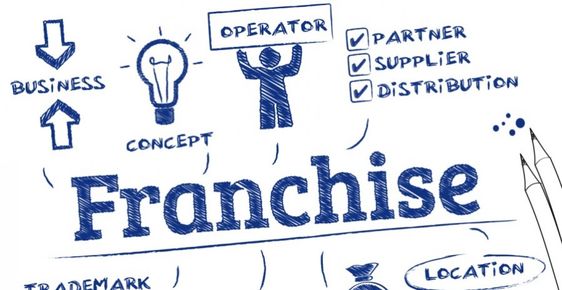
Marketing Obligations in Franchise Agreements
Franchising is a popular way to expand a business, but it’s not just about opening new locations. One of the key aspects of running a successful franchise is understanding the marketing obligations laid out in the franchise agreement. In this article, we’ll break down what marketing obligations are, why they matter, and how to navigate them effectively.
What Are Marketing Obligations in Franchise Agreements?
Marketing obligations are the rules and responsibilities related to promoting the franchise brand. These obligations ensure that every franchisee contributes to and benefits from a unified marketing strategy. The goal is to maintain a consistent brand image and attract customers across all franchise locations.
Why Marketing Obligations Matter
- Brand Consistency: Ensures all marketing efforts align with the brand’s image and messaging.
- Shared Costs: Marketing costs are often shared among franchisees, making it more affordable.
- Increased Reach: Coordinated marketing efforts can reach a wider audience, benefiting all franchisees.
- Customer Trust: Consistent branding helps build customer trust and loyalty.
Key Marketing Obligations in Franchise Agreements
Let’s explore some common marketing obligations you might find in a franchise agreement:
- National Advertising Fund (NAF) Contributions
- Franchisees are usually required to contribute a percentage of their sales to a National Advertising Fund. This fund is used for large-scale marketing campaigns that promote the brand nationwide.
- Local Marketing Requirements
- Apart from the national fund, franchisees might have to spend a certain amount on local advertising. This ensures that the franchise is visible in the local community.
- Brand Guidelines
- Franchise agreements often include strict guidelines on how to use the brand’s logos, colors, and messaging. This maintains brand consistency across all marketing materials.
- Approval Processes
- Any marketing materials created by the franchisee usually need to be approved by the franchisor. This prevents off-brand messaging and ensures quality.
- Participation in Promotions
- Franchisees may be required to participate in national promotions and sales campaigns. This helps create a uniform customer experience across all locations.
- Reporting and Compliance
- Franchisees often need to report their local marketing activities and spending to the franchisor. This ensures that everyone is meeting their marketing obligations.
How to Manage Your Marketing Obligations
Managing marketing obligations can seem daunting, but with the right approach, it can be straightforward. Here are some tips to help you stay on top of your marketing duties:
- Understand Your Agreement
- Carefully read your franchise agreement to understand all marketing-related clauses. Knowing exactly what’s expected of you is the first step to compliance.
- Budget for Marketing
- Make sure to include marketing expenses in your budget. Remember, both national and local marketing costs need to be accounted for.
- Use Provided Resources
- Take advantage of the marketing materials and support provided by the franchisor. This can save you time and ensure consistency.
- Stay Engaged
- Participate in franchisor meetings and marketing workshops. This will keep you updated on new campaigns and strategies.
- Monitor Your Results
- Keep track of your marketing efforts and their impact on your sales. This can help you adjust your strategies and optimize your spending.
Benefits of Effective Marketing in Franchising
Effective marketing is crucial for the success of any franchise. Here are some benefits of meeting and exceeding your marketing obligations:
- Increased Brand Awareness
- Consistent and effective marketing increases brand visibility, attracting more customers to your franchise.
- Higher Sales
- Effective marketing campaigns can drive more traffic to your location, boosting sales.
- Customer Loyalty
- A strong, consistent brand image helps build customer trust and loyalty, leading to repeat business.
- Competitive Advantage
- Being part of a well-marketed brand gives you a competitive edge over local independent businesses.
Examples of Successful Franchise Marketing
To better understand how marketing obligations can lead to success, let’s look at some examples:
- McDonald’s
- McDonald’s is known for its consistent and powerful marketing campaigns. Franchisees contribute to a global advertising fund, and the brand runs major campaigns that benefit all locations. Local marketing efforts are also encouraged, ensuring that each restaurant is visible in its community.
- Subway
- Subway’s franchisees contribute to both national and local marketing funds. The brand runs national campaigns, while franchisees focus on local promotions, such as sponsoring local events or offering special deals to attract nearby customers.
Challenges and Solutions in Franchise Marketing
While marketing obligations can drive success, they also come with challenges. Here are some common challenges and solutions:
- High Costs
- Marketing can be expensive. To manage costs, collaborate with other local franchisees for joint promotions. This spreads the cost and maximizes impact.
- Approval Delays
- Waiting for marketing materials to be approved can delay campaigns. Plan your marketing activities well in advance to allow time for the approval process.
- Adapting to Local Markets
- National campaigns might not always resonate with local audiences. Customize your local marketing efforts to better connect with your community, while still adhering to brand guidelines.
Conclusion
Marketing obligations in franchise agreements are designed to ensure the success of the franchise brand. By understanding and effectively managing these obligations, you can contribute to and benefit from the brand’s overall marketing efforts. Remember, a well-marketed franchise attracts more customers, drives higher sales, and builds customer loyalty.
By staying engaged with your franchisor, budgeting for marketing, and leveraging provided resources, you can meet your marketing obligations and help your franchise thrive. Happy marketing!




Average Rating